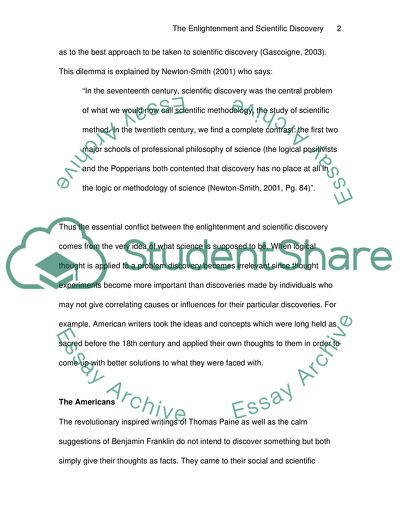Cite this document
(The Enlightenment and Scientific Discovery Literature review, n.d.)
The Enlightenment and Scientific Discovery Literature review. https://studentshare.org/systems-science/1711233-the-enlightenments-relation-to-scientific-discovery-and-pregress-is-far-more-fraught-with-problems-than-it-might-originally-appear-discuss-with-reference-to
The Enlightenment and Scientific Discovery Literature review. https://studentshare.org/systems-science/1711233-the-enlightenments-relation-to-scientific-discovery-and-pregress-is-far-more-fraught-with-problems-than-it-might-originally-appear-discuss-with-reference-to
(The Enlightenment and Scientific Discovery Literature Review)
The Enlightenment and Scientific Discovery Literature Review. https://studentshare.org/systems-science/1711233-the-enlightenments-relation-to-scientific-discovery-and-pregress-is-far-more-fraught-with-problems-than-it-might-originally-appear-discuss-with-reference-to.
The Enlightenment and Scientific Discovery Literature Review. https://studentshare.org/systems-science/1711233-the-enlightenments-relation-to-scientific-discovery-and-pregress-is-far-more-fraught-with-problems-than-it-might-originally-appear-discuss-with-reference-to.
“The Enlightenment and Scientific Discovery Literature Review”. https://studentshare.org/systems-science/1711233-the-enlightenments-relation-to-scientific-discovery-and-pregress-is-far-more-fraught-with-problems-than-it-might-originally-appear-discuss-with-reference-to.


